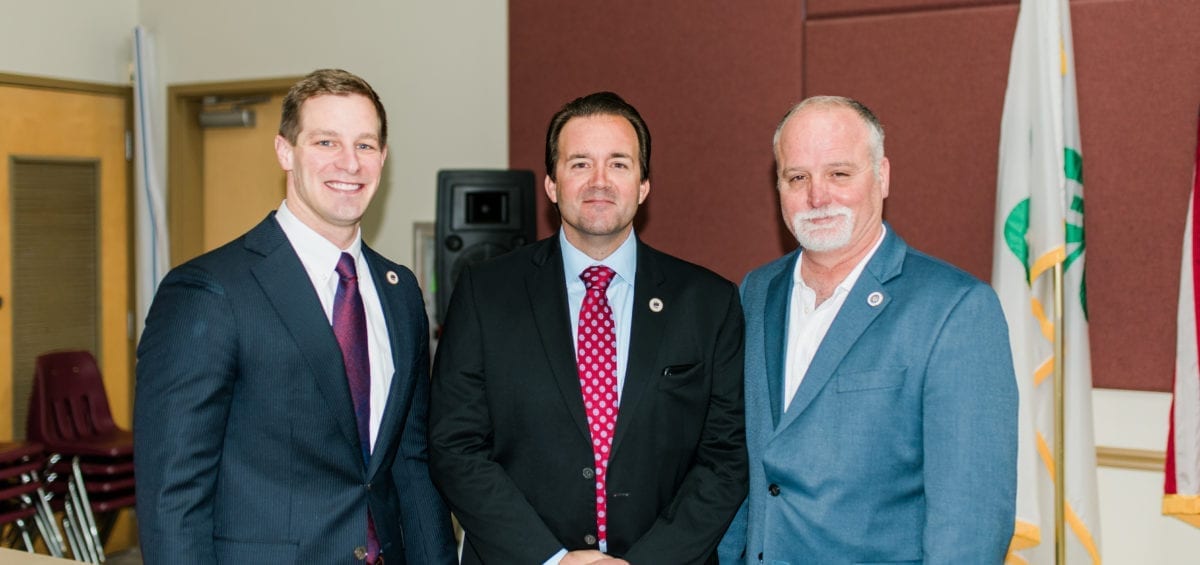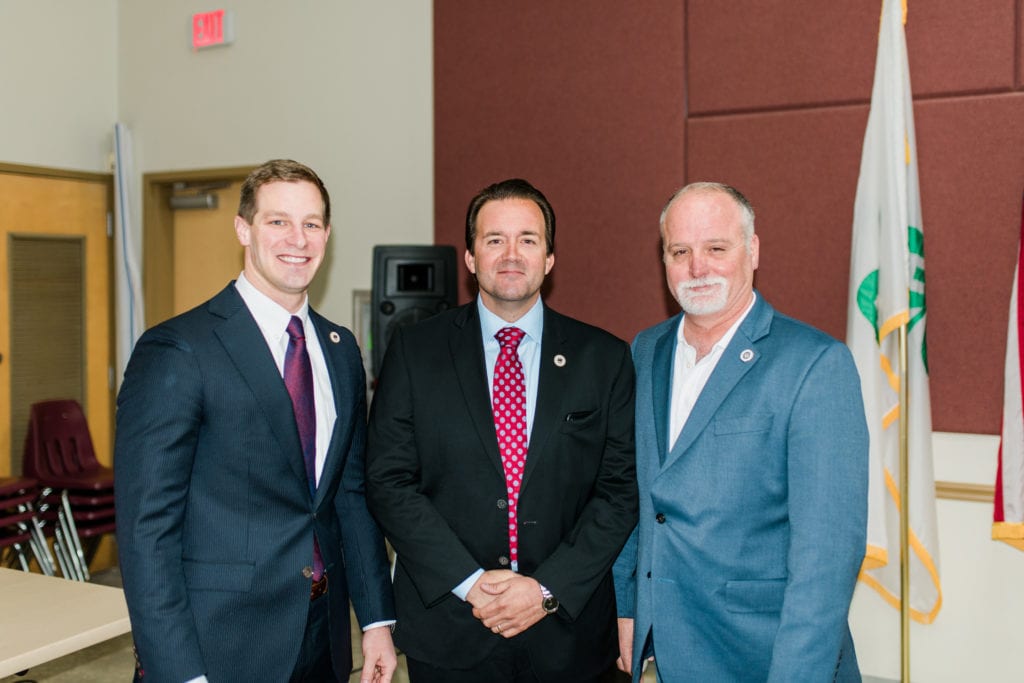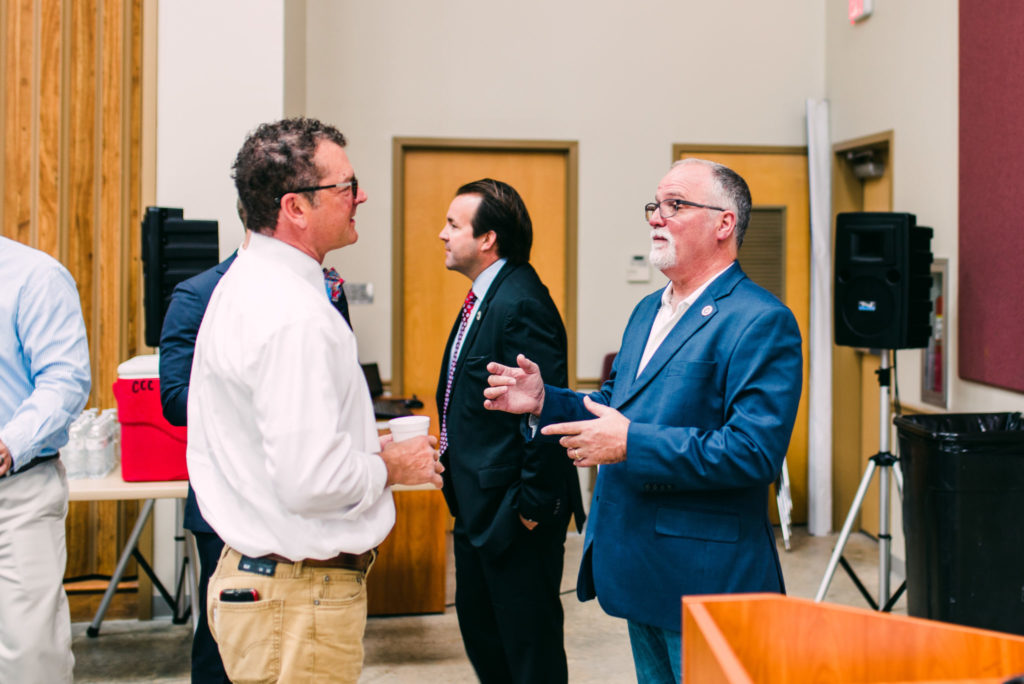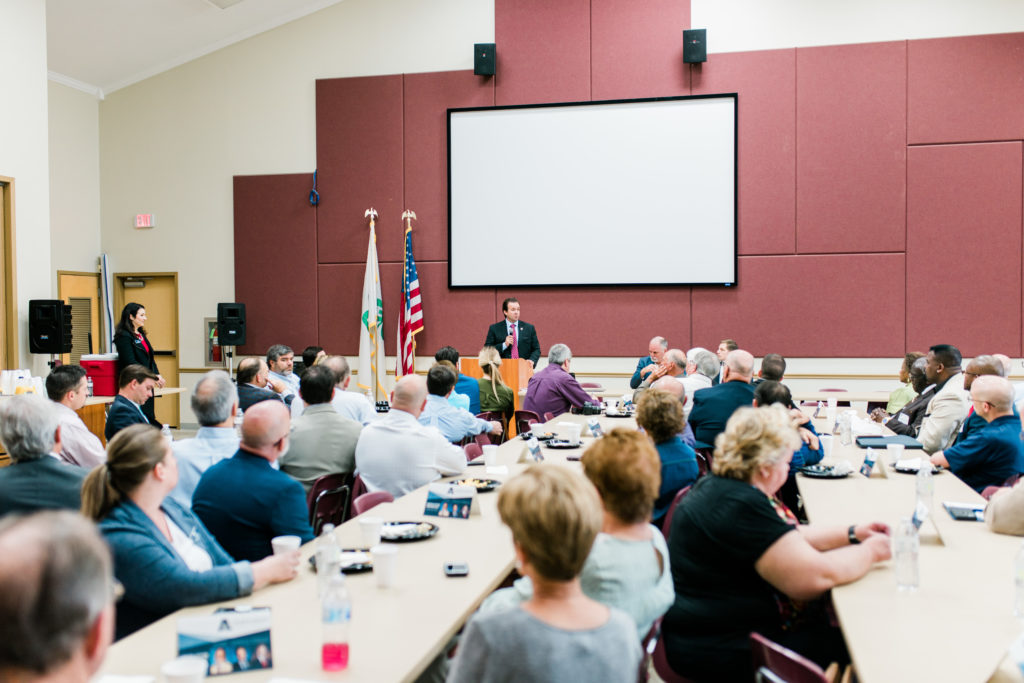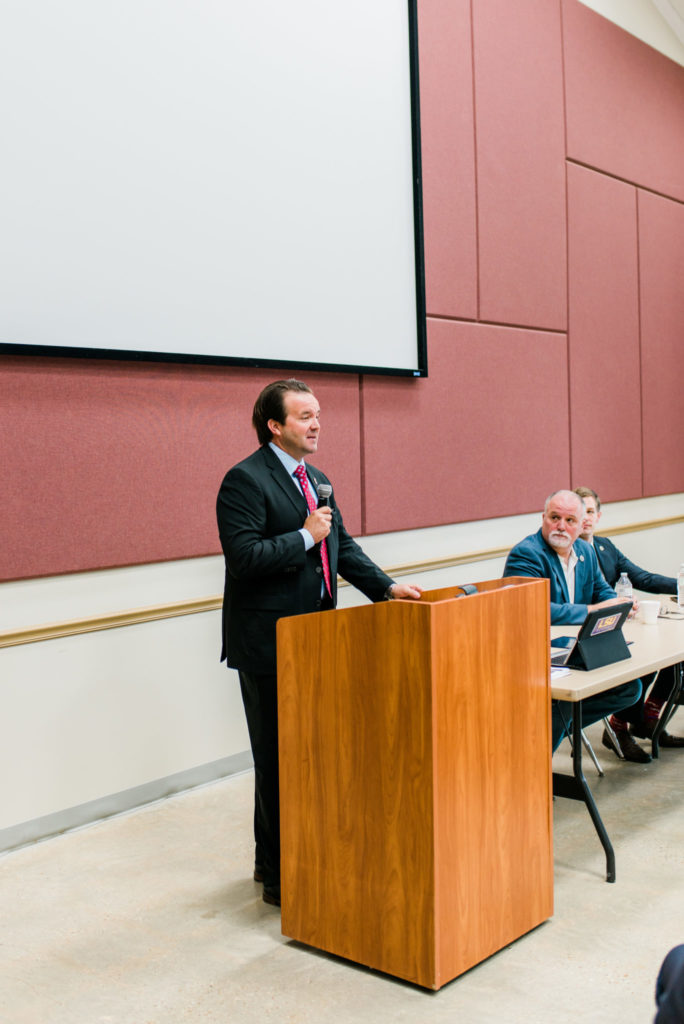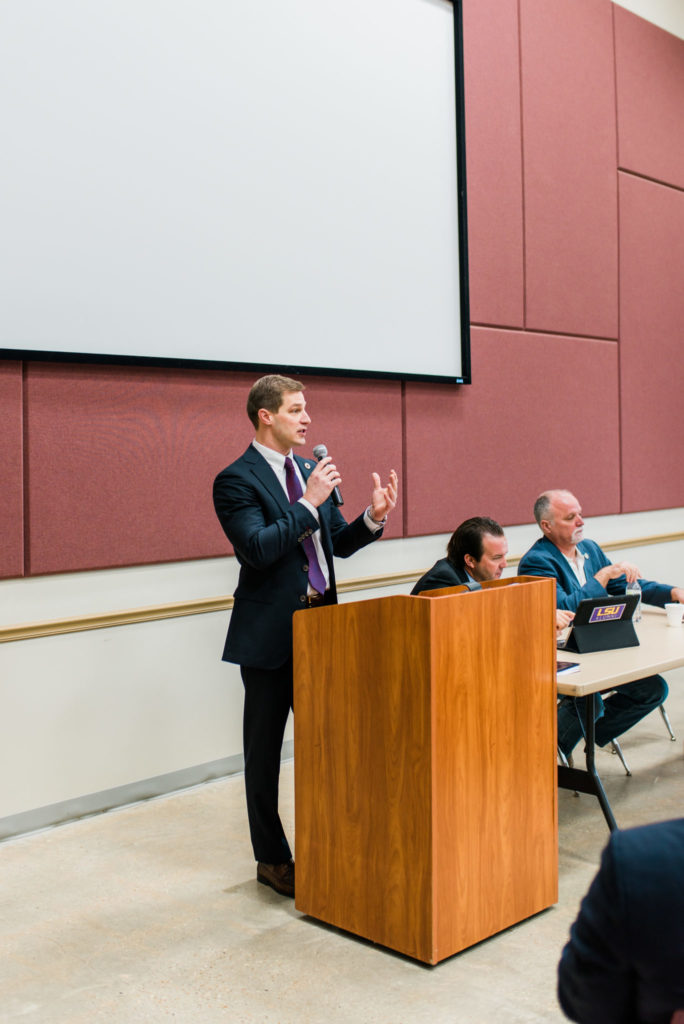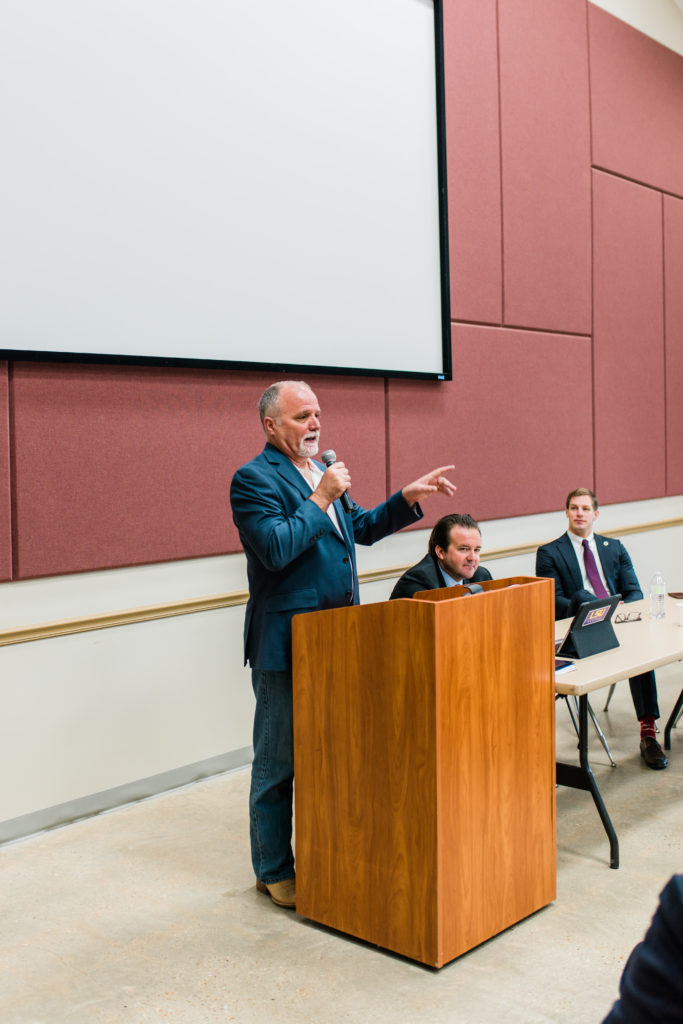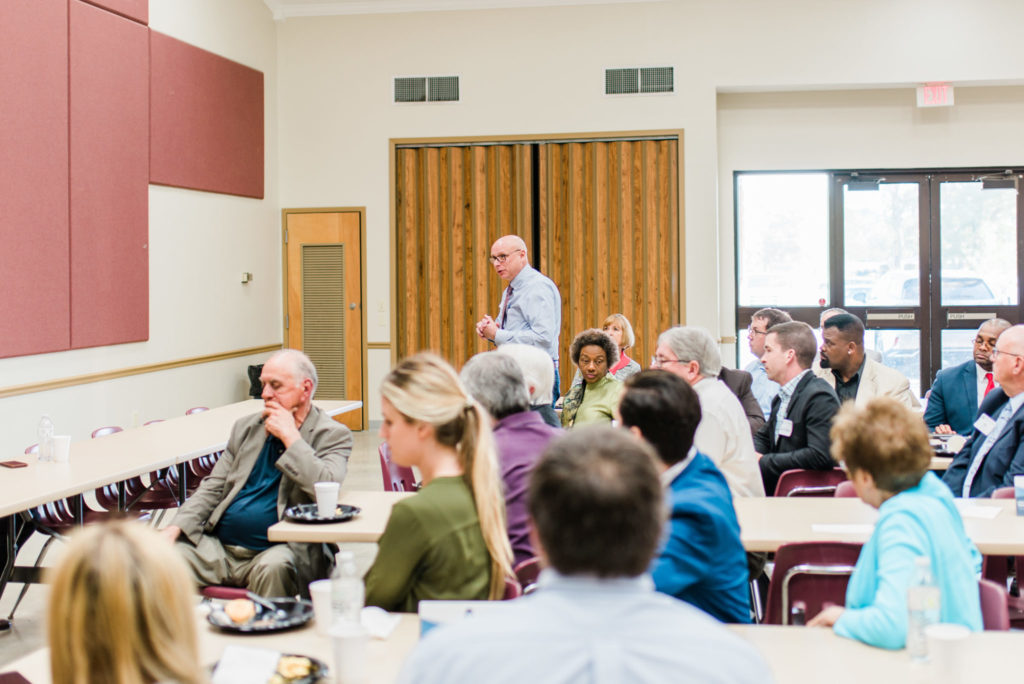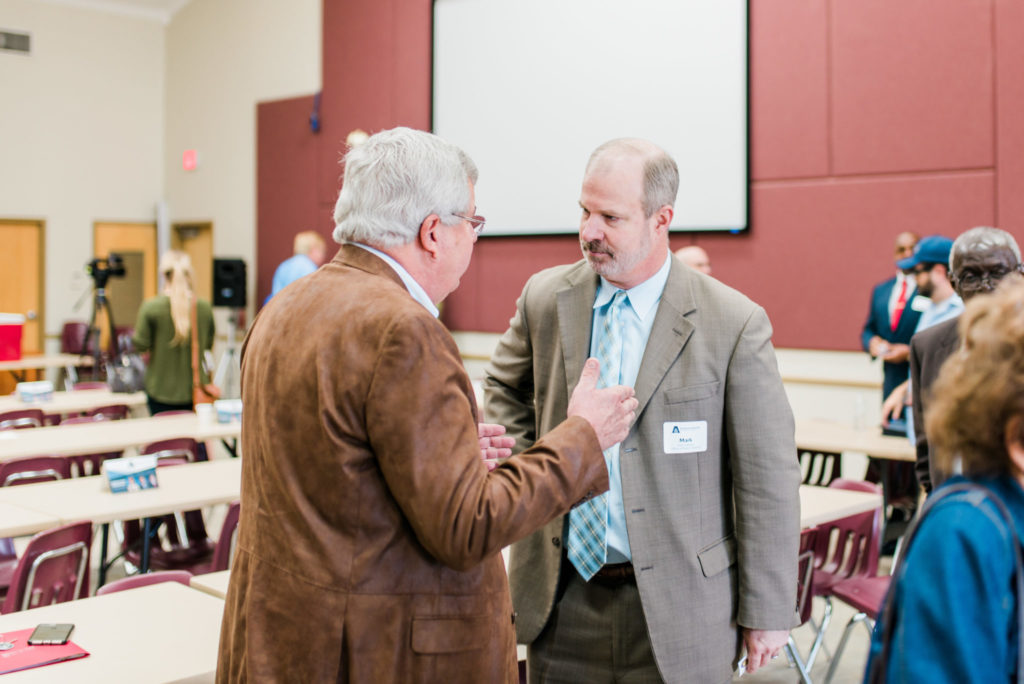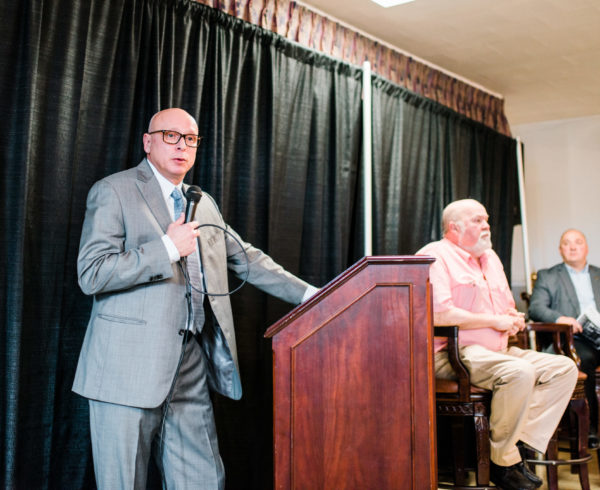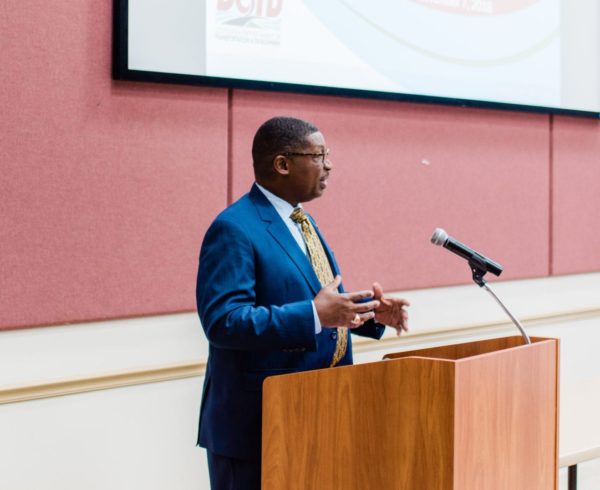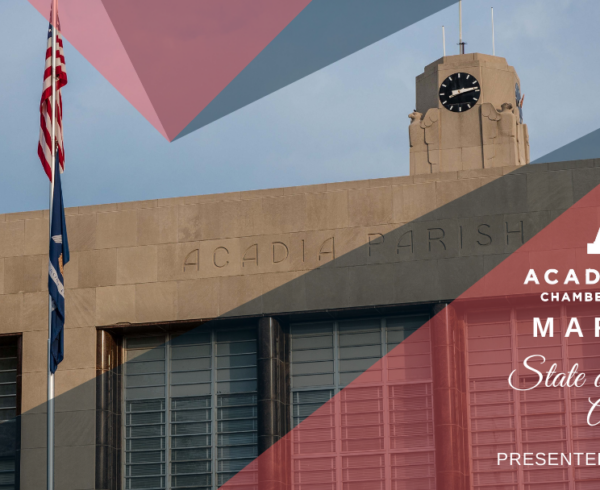Steve Bandy, Crowley Post-Signal
Teacher pay raises. Centralized sales tax collections. Revenue Estimating Conference. The state budget. It’s fairly obvious that a fiscal session of the Louisiana Legislature is coming. Three area solons were present to outline their thoughts on the upcoming session when the Acadia Parish Chamber of Commerce hosted the annual Legislative Breakfast Thursday at the LSU AgCenter.
Senator Bob Hensgens, R-Abbeville; Representative John Stefanski, R-Crowley; and Representative Philip Devillier, R-Eunice spoke to a capacity crowd about the session that begins at noon Monday, April 8. Senator Dan “Blade” Moorish, R-Jennings, was unable to attend. All three agreed that proposed pay raises for teachers and the establishment of a central sales tax collection agency would be the top two topics.
“I don’t think you’ll find one vote against giving teachers a raise,” Hensgens said. “The question is, where does the money come from?” That sentiment was echoed by Devillier and Stefanski. “There’s a lot of information that people don’t know,” said Devillier. “A $1,000 pay raise for teachers is going to cost taxpayers about $100 million a year. Add to that the $500 raise for support personnel — another $30 million.
“With the increase in pay, there is also an increase in the unfunded accrued liability — the UAL — payments. That brings the cost to taxpayers up to about $150 million a year … every year.” Stefanski agreed that the teacher raise “will dominate talks” during the session. “We’re below the Southern Region average but, again, how do we pay for it?” Stefanski asked. “What do we ask taxpayers to do? “All three seemed to agree that the pay raise will happen. None knew where the funding would come from.
The proposed centralized sales tax collection system will be another source of angst during the session. “A lot of Internet sales dome with no sales tax,” explained Devillier. “The Supreme Court’s ‘Wayfair Decision’ last year set up a centralized tax collection system so everyone can pay easily.” The problem, all three legislators noted, is that such a system would take the collection of sales taxes away from the individual parishes and centralize it, presumably, in Baton Rouge.
“It’s going to be controversial,” said Stefanski. “It’s going to pit local interest against state interest.” He explained that the Supreme Court decision stated that sales tax can be charged on Internet sales if and only if there is an easy method of payment. “We can’t have 64 (number of parishes) different methods of collecting out there,” he added. “We’re a sales tax state. We don’t like property taxes and we hate income taxes. We rely on sales taxes.”
Hensgens said there is some discussion as to exactly how much additional revenue would be generated for the state with a centralized collection agency. “I hear numbers ranging from $300 (million) to $600 (million),” he said. He assured that local governments would still receive their fees but warned, “Before long we’ll be buying our cars on the Internet. What’s that going to do to local tax collections?”
Stefanski added that Amazon and Wal-Mart already are paying sales tax on Internet sales, “so it won’t be a huge windfall. “The state’s going to get their’s,” he said. “The fear is that some of the small parishes, like Acadia, are going to get left out.” Turning to the overall budget, Devillier noted the ongoing dispute between Gov. John Bel Edwards and Speaker of the House Taylor Barras concerning figures presented by the Revenue Estimating Conference (REC).
“People seem to forget that the ‘e’ in REC stands for ‘estimating.’ We need to focus on adopting good tax policy, good reform measures and working both sides of the aisle,” he said. The conference, a three-member panel, prepares initial and revised estimates of money to be received by the state general fund and dedicated funds for the current and next fiscal years, which are available for appropriation.
The REC must unanimously agree on revenue forecasts before the legislature can appropriate. Barras has consistently disagreed. Hensgens said this is a good move on the part of the Speaker. “The longer he waits, the better idea we’ll have of income,” he said, explaining that the recent federal income tax reform measure will result in more income tax for the state, but no one is sure exactly how much more.
“The REC has been wrong 80 percent of the time over the last few years,” Hensgens continued. “We need to know the right numbers.” During a question-and-answer period, most of the focus was on the centralize sales tax collection system and teacher pay raise. No one could say for certain that the state would not assess its own fee for collecting and dispersing sales taxes.
Scott Richard, Acadia Parish Superintendent of Public Schools, urged consideration for the proposed teacher pay raise, adding,” On the local level, right now we’re looking closely at ways to contribute more to salaries.”
Devillier assured, “The budget will include raises (for teachers), but the money will have to come from somewhere.” Stefanski added, “We’re trying to look 10, 12 years down the road. Once that temporary tax rolls off the books (in five years), we’re back to another fiscal cliff. “There’s just a limited amount of tax dollars out there.”


